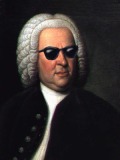Japan's boffins: Global warming isn't man-made
Climate science is 'ancient astrology', claims report
Posted in Environment, 25th February 2009 12:23 GMT
Free whitepaper – Utilizing IT to put data to work
Exclusive Japanese scientists have made a dramatic break with the UN and Western-backed hypothesis of climate change in a new report from its Energy Commission.
Three of the five researchers disagree with the UN's IPCC view that recent warming is primarily the consequence of man-made industrial emissions of greenhouse gases. Remarkably, the subtle and nuanced language typical in such reports has been set aside.
One of the five contributors compares computer climate modelling to ancient astrology. Others castigate the paucity of the US ground temperature data set used to support the hypothesis, and declare that the unambiguous warming trend from the mid-part of the 20th Century has ceased.
The report by Japan Society of Energy and Resources (JSER) is astonishing rebuke to international pressure, and a vote of confidence in Japan's native marine and astronomical research. Publicly-funded science in the West uniformly backs the hypothesis that industrial influence is primarily responsible for climate change, although fissures have appeared recently. Only one of the five top Japanese scientists commissioned here concurs with the man-made global warming hypothesis.
JSER is the academic society representing scientists from the energy and resource fields, and acts as a government advisory panel. The report appeared last month but has received curiously little attention. So The Register commissioned a translation of the document - the first to appear in the West in any form. Below you'll find some of the key findings - but first, a summary.
Summary
Three of the five leading scientists contend that recent climate change is driven by natural cycles, not human industrial activity, as political activists argue.
Kanya Kusano is Program Director and Group Leader for the Earth Simulator at the Japan Agency for Marine-Earth Science & Technology (JAMSTEC). He focuses on the immaturity of simulation work cited in support of the theory of anthropogenic climate change. Using undiplomatic language, Kusano compares them to ancient astrology. After listing many faults, and the IPCC's own conclusion that natural causes of climate are poorly understood, Kusano concludes:
"[The IPCC's] conclusion that from now on atmospheric temperatures are likely to show a continuous, monotonic increase, should be perceived as an unprovable hypothesis," he writes.
Shunichi Akasofu, head of the International Arctic Research Center in Alaska, has expressed criticism of the theory before. Akasofu uses historical data to challenge the claim that very recent temperatures represent an anomaly:
"We should be cautious, IPCC's theory that atmospheric temperature has risen since 2000 in correspondence with CO2 is nothing but a hypothesis. "
Akasofu calls the post-2000 warming trend hypothetical. His harshest words are reserved for advocates who give conjecture the authority of fact.
"Before anyone noticed, this hypothesis has been substituted for truth... The opinion that great disaster will really happen must be broken."
continued.....
http://www.theregister.co.uk/2009/02/25/jstor_climate_report_translation/page2.html









